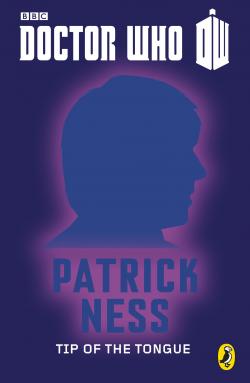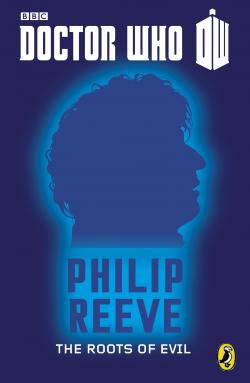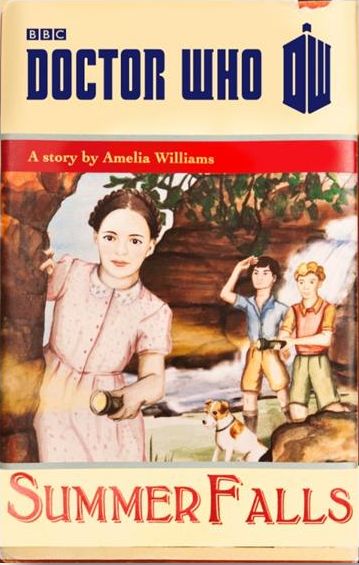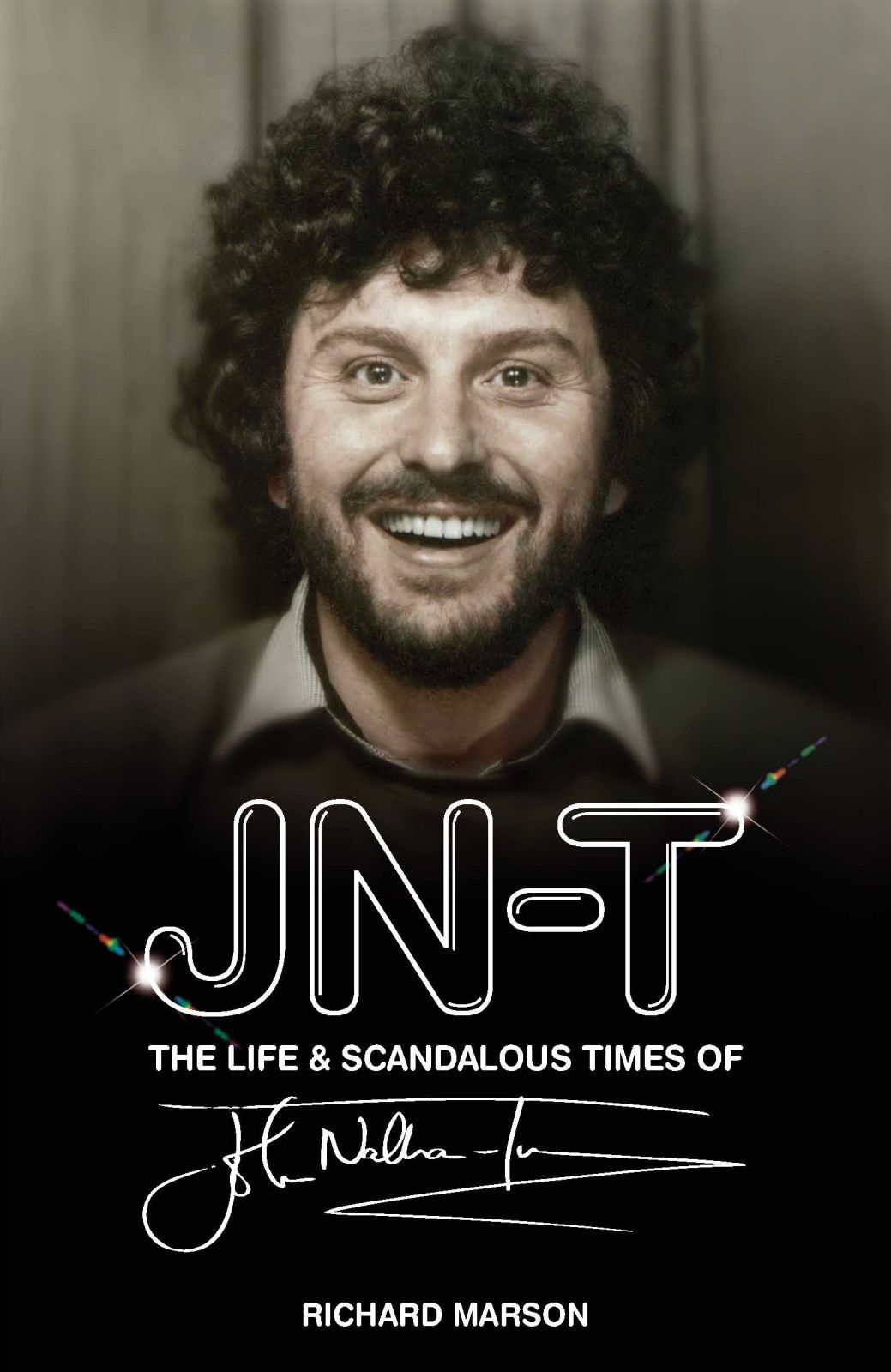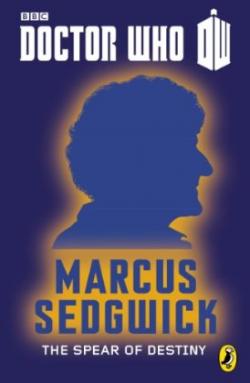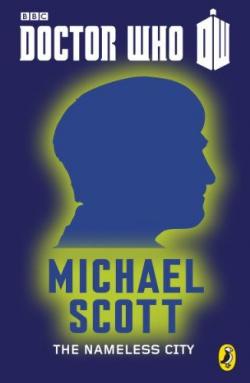Tip of the Tongue (Puffin Books)
Thursday, 23 May 2013 - Reviewed by Matt Hills
This review contains plot spoilers and is based on the UK edition of the ebook.
There can be no doubting Patrick Ness’s credentials as a writer of YA fantasy, and this Puffin series continues to add ‘big name’ authorial value to its month-by-month releases. Reaching the fifth Doctor’s tenure, Tip of the Tongue features Nyssa as the Doctor's sole companion, also including some smart continuity references to Adric and Tegan near its conclusion.
Ness excels at creating fantasy worlds. Here it’s America in 1945, but very much with an alien twist. Strange creatures dubbed 'Truth Tellers' (which attach themselves to their recipient’s tongue) have invaded Temperance, Maine, meaning that locals can indulge themselves in expressing plenty of plain, unvarnished reality. Of course, Ness can’t resist having some fun with this concept, working in a version of a “does my bum look big in this?” gag, but he also strikes a more serious note by illustrating just how much society hinges on degrees of tact, if not innumerable white lies. Constant truth-telling offers a ready way for veracious intruders to disrupt human existence, it would seem.
Appropriately enough, Ness withholds the full truth of his own tale, and as a result there’s a satisfying twist towards the end of proceedings. He relies on his readers’ sense of what constitutes a Doctor Who story (e.g. extraterrestrial threat) to misdirect and mislead, and the “Dipthodat” race are ultimately not quite what you might have expected… If economy with the truth gives rise to a clever denouement, there is nevertheless a danger that this doesn’t always feel exactly like Doctor Who. It’s more of a scenario which the Doctor happens to breeze through, with our celery-sporting hero reduced almost to a guest-star role. Ness is far more interested in his own original characters and their relationships, focusing on the friendship between young Jonny and Nettie rather than centring events on the Doctor and Nyssa (even if the latter’s trousers cause a bit of a stir in 1945 Maine).
Last month’s Roots of Evil simultaneously captured the flavour of fourth Doctor-Leela adventures and conveyed Philip Reeve’s authorial voice, whereas this time round we get more of a character study, and a carefully thought-out, localised transformation of history, but not something which necessarily fits snugly into the Davison era. Instead, Tip of the Tongue skillfully combines its truth-telling theme with a coming-of-age tale, where the reality of the human heart becomes something subtle and malleable – something not fully in the grasp of its teller – rather than a mere matter of reportage. Ness makes us care about Jonny and Nettie, and with more than a hint of “new Who” permeating the turn of events, emotional realism becomes just as important here as the matter of an alien incursion.
Ultimately, Tip of the Tongue contradicts its title; unlike a word that’s almost remembered, yet can’t quite be recalled, this material is always under its author’s control, and it’s a beautifully crafted piece of fiction - a good story first and foremost, and a Doctor Who story second, as if viewed from the perspective of somebody who would usually be a bit-part character. And where child actors can sometimes pose a problem for televised Who, no such difficulties plague the written word. Young characters come into their own in this deft integration of YA fiction and the Whoniverse.
To be sure, Patrick Ness hasn’t written a novella which simply apes family entertainment TV, nor one which offers unbridled SF spectacle in literary form. And, unusually, fan service is almost an alien concept here (bar a few moments of continuity referencing, and the fifth Doctor’s attitude towards travelling companions). But perhaps the most compelling form of “fan service” lies in creating a thematically coherent, intelligent and consistent story-world that never feels programmatic. Tip of the Tongue isn’t a “game changer”. It doesn’t promise any big secrets or any devastating reveals. Yet, perhaps unwittingly echoing Peter Davison’s portrayal of the Doctor, this month’s Puffin ebook combines quiet integrity with true warmth and charm.
There can be no doubting Patrick Ness’s credentials as a writer of YA fantasy, and this Puffin series continues to add ‘big name’ authorial value to its month-by-month releases. Reaching the fifth Doctor’s tenure, Tip of the Tongue features Nyssa as the Doctor's sole companion, also including some smart continuity references to Adric and Tegan near its conclusion.
Ness excels at creating fantasy worlds. Here it’s America in 1945, but very much with an alien twist. Strange creatures dubbed 'Truth Tellers' (which attach themselves to their recipient’s tongue) have invaded Temperance, Maine, meaning that locals can indulge themselves in expressing plenty of plain, unvarnished reality. Of course, Ness can’t resist having some fun with this concept, working in a version of a “does my bum look big in this?” gag, but he also strikes a more serious note by illustrating just how much society hinges on degrees of tact, if not innumerable white lies. Constant truth-telling offers a ready way for veracious intruders to disrupt human existence, it would seem.
Appropriately enough, Ness withholds the full truth of his own tale, and as a result there’s a satisfying twist towards the end of proceedings. He relies on his readers’ sense of what constitutes a Doctor Who story (e.g. extraterrestrial threat) to misdirect and mislead, and the “Dipthodat” race are ultimately not quite what you might have expected… If economy with the truth gives rise to a clever denouement, there is nevertheless a danger that this doesn’t always feel exactly like Doctor Who. It’s more of a scenario which the Doctor happens to breeze through, with our celery-sporting hero reduced almost to a guest-star role. Ness is far more interested in his own original characters and their relationships, focusing on the friendship between young Jonny and Nettie rather than centring events on the Doctor and Nyssa (even if the latter’s trousers cause a bit of a stir in 1945 Maine).
Last month’s Roots of Evil simultaneously captured the flavour of fourth Doctor-Leela adventures and conveyed Philip Reeve’s authorial voice, whereas this time round we get more of a character study, and a carefully thought-out, localised transformation of history, but not something which necessarily fits snugly into the Davison era. Instead, Tip of the Tongue skillfully combines its truth-telling theme with a coming-of-age tale, where the reality of the human heart becomes something subtle and malleable – something not fully in the grasp of its teller – rather than a mere matter of reportage. Ness makes us care about Jonny and Nettie, and with more than a hint of “new Who” permeating the turn of events, emotional realism becomes just as important here as the matter of an alien incursion.
Ultimately, Tip of the Tongue contradicts its title; unlike a word that’s almost remembered, yet can’t quite be recalled, this material is always under its author’s control, and it’s a beautifully crafted piece of fiction - a good story first and foremost, and a Doctor Who story second, as if viewed from the perspective of somebody who would usually be a bit-part character. And where child actors can sometimes pose a problem for televised Who, no such difficulties plague the written word. Young characters come into their own in this deft integration of YA fiction and the Whoniverse.
To be sure, Patrick Ness hasn’t written a novella which simply apes family entertainment TV, nor one which offers unbridled SF spectacle in literary form. And, unusually, fan service is almost an alien concept here (bar a few moments of continuity referencing, and the fifth Doctor’s attitude towards travelling companions). But perhaps the most compelling form of “fan service” lies in creating a thematically coherent, intelligent and consistent story-world that never feels programmatic. Tip of the Tongue isn’t a “game changer”. It doesn’t promise any big secrets or any devastating reveals. Yet, perhaps unwittingly echoing Peter Davison’s portrayal of the Doctor, this month’s Puffin ebook combines quiet integrity with true warmth and charm.
